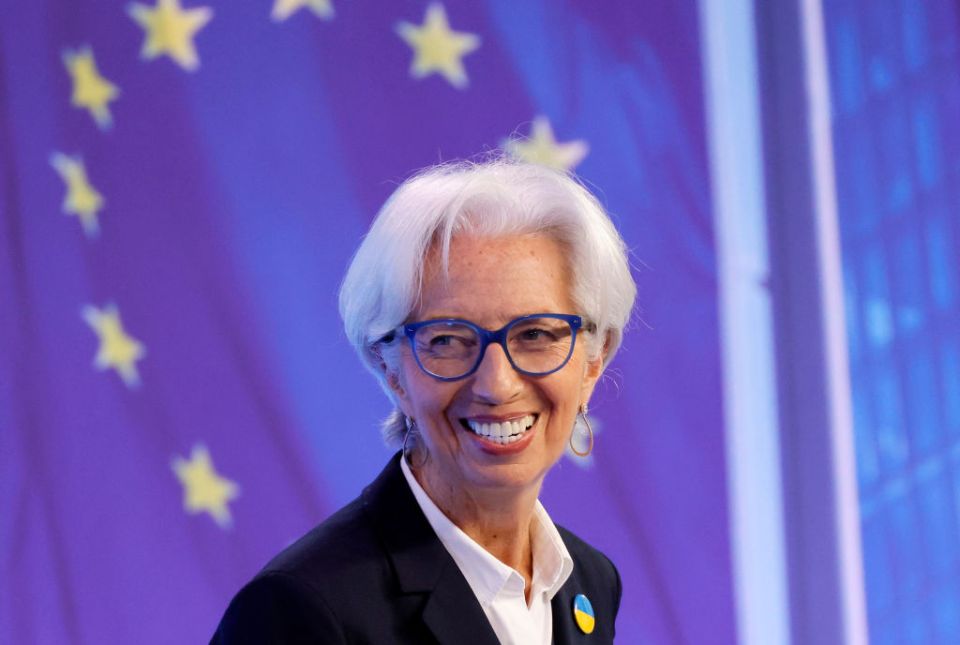Euro economy pulls ahead of UK reinforcing IMF dire recession warning

The UK is trailing its European economic peers, fresh figures out today reveal, reinforcing the International Monetary Fund’s (IMF) warning that it will be the only rich country to contract this year.
The eurozone economy – made up of the 19 countries that use the common currency – unexpectedly grew 0.1 per cent in the final three months of last year, smashing market expectations of a small contraction.
The numbers from eurostat reinforce fresh forecasts from the IMF late last night that predicted the UK will be the only G7 economy to shrink in 2023.
Even Russia, which has been hobbled by economic sanctions in response to its invasion of Ukraine, will outpace the UK this year.
Eurozone GDP grew despite Germany and Italy, two of the bloc’s economic powerhouses, contracting in the final quarter of last year.
The IMF does not think German, Italian, French or Spanish GDP will shrink in 2023.
A tough energy crunch in Europe caused by Russia sucking gas supplies out of the market after it invaded Ukraine has hobbled the common currency area’s economy.
Economists rushed out dire warnings of blackouts in the immediate aftermath of the invasion. However, a rapid build up of liquified natural gas supplies and an unusually warm winter helped rebalance Europe’s energy market, taking the strain off its economy.
Rampant inflation, which has hit record highs but is on a downward trajectory, is squeezing consumers and chilling economic activity.

“Looking ahead, we think the euro-zone (excluding Ireland) will fall into recession in the first half of this year as the effects of the ECB’s policy tightening intensify, households struggle with the cost of living crisis and external demand remains sluggish,” Jack Allen-Reynolds, senior Europe economist at consultancy Capital Economics, said.
He added the ECB will hike rates 50 basis points again on Thursday.
Others agreed with that assessment.
“We think [eurozone] GDP will fall this quarter, as higher interest rates and tighter lending standards discourage investment while still-high inflation keeps a lid on household spending,” Melanie Debono, senior Europe economist at consultancy Pantheon Macroeconomics, said.